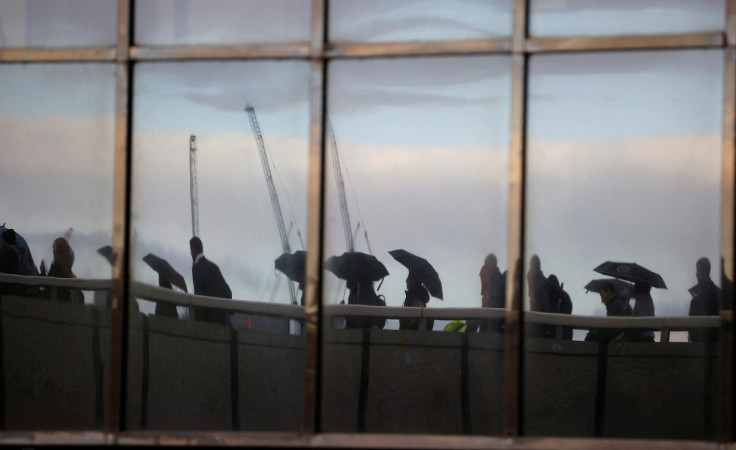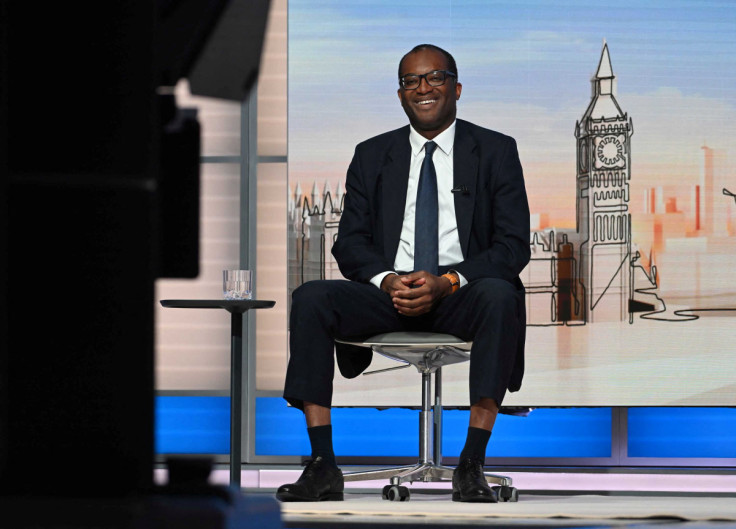Reversing UK Confidence Crash Requires Policy U-turn: Economists

Rock-bottom investor confidence in Britain will only recover if finance minister Kwasi Kwarteng scraps the economic plan that unleashed such turmoil in financial markets, leading economists, investors and banks warned on Tuesday.
The pound touched an all-time low of $1.0327 on Monday and British government bonds sold off at a ferocious pace as investors lost confidence in Prime Minister Liz Truss's new government. Some mortgage providers, unable to price loans, suspended sales.
U.S. economist Larry Summers said the first step in regaining credibility was "not saying incredible things", after Kwarteng suggested there would be more tax cuts on top of the 45 billion pounds worth of debt-funded cuts he announced last week.
Summers, a former U.S. Treasury Secretary, pointed to surging interest rates on long-dated British debt as a "hallmark of situations where credibility has been lost", and said the crisis would affect London's viability as a global financial centre.
"My guess is that pound will find its way below parity with both the dollar and euro," he added.
Truss was elected prime minister earlier this month by a vote of Conservative Party members - not the broader electorate - with a vow to snap the economy out of years of stagnant growth with deep tax cuts and deregulation.
But an economic plan outlined on Friday by her finance minister Kwarteng, that required an additional 72 billion pounds worth of government debt issuance in this fiscal year alone, has sent shockwaves through financial markets, sending the costs of such borrowing even higher.
While many of her lawmakers have cheered a return to the Thatcherite and Reaganomics doctrines of the 1980s, some are starting to express alarm about the impact it will have on the finances of the government, companies and households.
Two years before a general election is due, the opposition Labour Party now holds a 17-point lead over Truss's Conservatives, a level not seen in more than two decades, according to a YouGov opinion poll for The Times newspaper.
Huw Merriman, a Conservative lawmaker who backed Truss's rival, former finance minister Rishi Sunak, in the race to become prime minister, said the victor appeared to be "losing our voters with policies we warned against".
"For the good of our country, and the livelihoods of everyone in our country, I still hope to be proven wrong," he said on Twitter.
In response to the turmoil the Bank of England and Treasury released statements after London stock markets closed on Monday in the hope of reassuring investors, with the central bank saying it would not hesitate to raise interest rates if needed.
That immediately knocked the pound further, as some investors had bet on an emergency rate hike, although it recovered partially on Tuesday, up 0.9% at $1.0782 at 8.03 a.m. (0703 GMT).
British government bond yields fell sharply too, but only partly reversing the historic increases seen on Friday and Monday.
Former BoE deputy governor Charles Bean said he advocated an emergency move from the central bank.
"On this occasion if I had still been at the bank in my role as deputy governor, I certainly would have been counselling the governor that I think this is one of those occasions where it might have made sense (to call a meeting)," he told BBC radio.
A "go big and... go fast", strategy would be the best approach, Bean said.
MARKETS STILL WATCHING
Kwarteng pledged on Monday to set out medium-term debt-cutting plans on Nov. 23, alongside forecasts from the independent Office for Budget Responsibility showing the full scale of government borrowing.
Conservative lawmaker Andrew Bridgen told BBC Radio he had spoken to Kwarteng since Friday and that he expected him to cut government spending in the coming weeks.
Economist Allan Monks from America's largest bank J.P. Morgan, said the verbal intervention from the BoE and Treasury had been "measured".
"But there is still no clear sign that the source of the problem - the government's fiscal strategy - is being reversed or reconsidered," Monks said.
"This will need to happen before November in order to avoid a much worse outcome for the economy."
Chris Scicluna, head of economic research at Daiwa Capital Markets, said there was no reason why markets would give the government the benefit of the doubt before Kwarteng's fiscal announcement in late November.
"The market could force their hand and there still could be an emergency rate hike before the next BoE Meeting," he said, referring to the next scheduled policy announcement on Nov. 3.

© Copyright Thomson Reuters 2024. All rights reserved.











